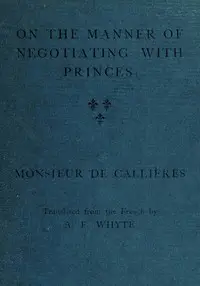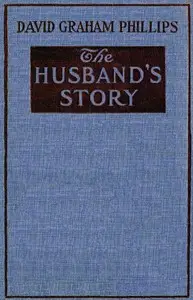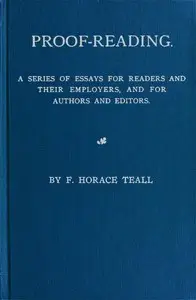"On the Manner of Negotiating with Princes" by Monsieur de Callières is a treatise on the principles and practices of diplomacy written in the early 18th century. This work provides insights into effective negotiation techniques, the personal qualities essential for diplomats, and the strategic importance of diplomacy in maintaining peace and state interests. With its historical context, the book addresses the complexities and responsibilities involved in negotiating on behalf of sovereigns, making it relevant for those interested in diplomacy, international relations, or political history. At the start of the book, the author underscores the significance of diplomacy as an essential political art often overlooked by the public. Callières emphasizes that successful negotiation can determine the fate of nations and highlights the importance of selecting capable diplomats who are knowledgeable about foreign interests and dynamics. He argues that while military might is traditionally exalted, the true conduct of state interests relies heavily on the skills and attributes of those who manage diplomatic relations. His observations serve as both a guide and a call to elevate the status and recognition of diplomacy as a profession crucial for the stability and prosperity of nations. (This is an automatically generated summary.)

On the manner of negotiating with princes On the uses of diplomacy; the choice of ministers and envoys; and the personal qualities necessary for success in missions abroad
By Monsieur de (François) Callières
"On the Manner of Negotiating with Princes" by Monsieur de Callières is a treatise on the principles and practices of diplomacy written in the early 1...
François de Callières, sieur de Rochelay et de Gigny was a member of the Académie française, a diplomat and writer, a special envoy of Louis XIV who was one of three French plenipotentiaries who signed the Peace of Ryswick in 1697; his De la manière de négocier avec les souverains, 1716, based on his experiences in negotiating the Treaty and having its origins in a letter to the Regent, Philippe, duc d'Orléans, to whom the work was dedicated, became a textbook for eighteenth-century diplomacy: Thomas Jefferson had a copy in his library at Monticello. Of this book John Kenneth Galbraith declared "One wonders why anything more needed to be said on the subject."













